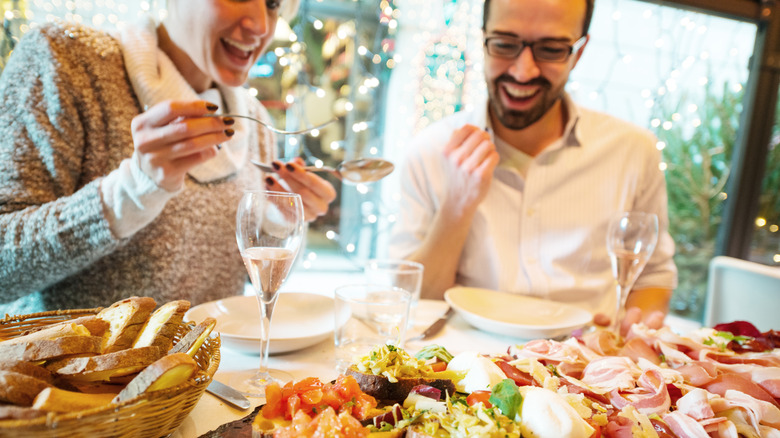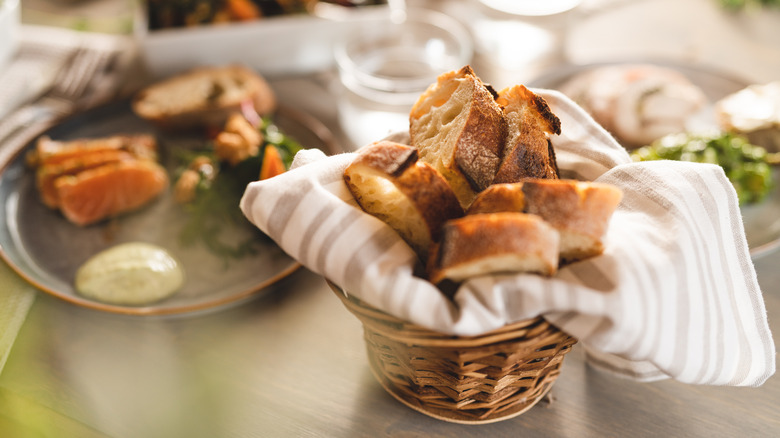Common Items To Avoid Ordering In Europe Unless You Want Your Bill To Be Unexpectedly Inflated
Dining out anywhere can be expensive, and more so if you're splurging on restaurant meals all the time on a European vacation. You've already shelled out a lot for the plane fare, your hotel, and all those lovely souvenirs along the way, so if you can save a bit of money here and there, it's a benefit. To save a few euros at the dinner table, avoid the bread and water. While in the U.S., these items are often free, if you're dining out in Europe, for the most part, they're not, and they can unexpectedly inflate your bill.
In Europe, you may be offered a basket or a selection of bread and not realize that you're going to be charged for it because it may not be explicitly stated. If you don't want to pay for it, simply say no when it's offered. However, you should expect an added service fee in Italy for things like bread, utensils, and table linens. In that case, you're going to be charged anyway, so you might as well enjoy it. However, don't expect to dip your treat in olive oil and balsamic, as this popular bread-dipping habit isn't something that's done in Italy.
How to get around water charges at European restaurants
Bread isn't the only thing you're going to be unexpectedly charged for at a restaurant in most places in Europe. There is often a charge for water as well. The exception to this rule is France, where restaurants are required by law to bring you free water if you're having a meal. However, if you order a bottle, you'll be charged.
In other European countries, you'll have to ask specifically for tap water if you don't want to pay extra. That said, you may get some very odd looks. Tap water in some countries isn't really tasty to drink. In other countries, it may not be safe to drink if it's not regulated. It's worth doing a little research before you go. One way to tell if the water is good is to see if there are lots of public drinking fountains around town. For example, there are so many in Italy that locals may cringe if they see you buying bottled water.
One other difference is that you may find the water glass given to you is much smaller than what you're used to. If you drink a lot of water in your daily life, this might take some adjustment. One thing you can do is bring your own reusable bottle with you. Even in a country where the tap water isn't regulated, you may find inexpensive bottled water at the local grocery store that's cheaper than buying it at or around a tourist site. It's worth a stop to grab some large bottles and fill your portable one for the day before you leave the hotel.

